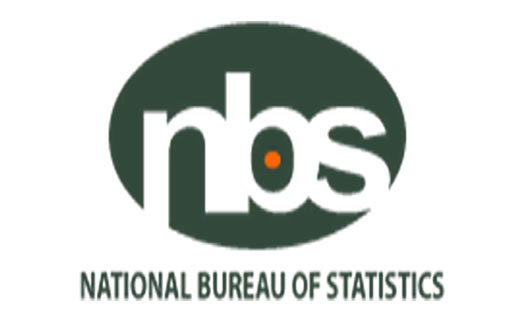National bureau of statistics Nigeria (NBS): A brief History
The National Bureau of Statistics (NBS) came into being with the merger of the Federal Office of Statistics (FOS) and the National Data Bank (NDB). The creation was part of the implementation of the Statistical Master Plan (SMP), a program document of the Federal Government of Nigeria (FGN).
The merger was to give the agency a national outlook as the apex statistical agency for all the three tiers of Government.
NBS is expected to coordinate Statistical Operations of the National Statistical System in the production of Official Statistics in all the Federal Ministries, Departments and Agencies (MDAs), State Statistical Agencies (SSAs) and Local Government Councils (LGCs)
Nigeria operates Federal System of government with 36 States and Federal Capital Territory and 774 Local Government Areas (LGAs). At the federal level, each Ministry, Department and Agency has Director of Statistics. Each state has Director of Statistics and Head of statistics Unit at Local Government Areas. All these including Statistical Institutes constitute the Nigeria National Statistical System (NSS).
The Internal Organization of the bureau is built on Statistics Act of 2007 which is the Legal Instrument established by the Acts of Parliament.
National bureau of statistics Nigeria poverty levels
Poverty is multi-dimensional and no single indicator can capture all the aspects of poverty. We define poverty based on the availability of certain basic needs such as food, clothing, shelter, sanitation facilities, pipe-borne water, education, good healthcare and access to information. Statistically however, we determine poverty based on income and/or consumption, which assigns numbers to living standards and makes it easier to calculate poverty. The National Bureau of Statistics (NBS) captures poverty rates across Nigeria with three different approaches;
(1) Absolute Poverty Approach
(2) Relative Poverty Approach
(3) Dollar per day

In Nigeria 40.1 percent of total population were classified as poor. In other words, on average 4 out of 10 individuals in Nigeria has real per capita expenditures below 137,430 Naira per year. This translates to over 82.9 million Nigerians who are considered poor by national standards. It is important to note, that this number excludes the state of Borno.
Review Of 2009/10 Absolute Poverty Rates Across Nigeria
Poverty and Inequality in Nigeria 2019: Executive Summary
National bureau of statistics Nigeria Human Development Report 2016 pdf
National bureau of statistics Nigeria Agriculture
National bureau of statistics measure agriculture performance in Nigeria through some indicators. They help to tell a story about the exchange of products with the nature and across border in the economic phase.
NBS Integrated Surveys on Agriculture Nigeria
Nigeria agriculture foreign trade reports
National bureau of statistics Nigeria Unemployment
The National bureau of statistics is charged with the duty of collating numbers in key areas of the economy. Unemployment and Underemployment rates vary across states according to the nature of economic activity predominant in each State. States with higher focus on seasonal agriculture tend to have higher rates of underemployment compared to unemployment. This may swing from high full-time employment during periods of planting and harvest, when they are fully engaged on their farms, to periods of high underemployment and even unemployment at other periods in between.
Labor Force Statistics – Volume 2: Unemployment and Underemployment by State
Nigeria Living Standards Survey 2020

National bureau of statistics Nigeria Employment
Of a total employed (full time employed and underemployed which is 20 and above working hours a week) of 69.09 million, 17.88million or 25.88% work for pay/ wage, 45.47 million or 65.82% are self-employed working in agriculture (25.47 million or 36.87%) and non-agriculture related activities (20.0 million or 28.95%), 779,002 or 1.13% are paid apprentice and 4.95 million or 7.17% are unpaid houseworkers.
Labor Force Statistics Q3 2017
National bureau of statistics Nigeria recruitment
National bureau of statistics Nigeria recruitment Requirements
- A bachelor or Master’s degree in relevant discipline in the quantitative field
- Certificate of National Youth Service or exemption letter
- Computer literacy and vastness with Microsoft office suite
National bureau of statistics Nigeria recruitment Procedure
- At the time of advert, a valid link is published for applications
- Applicants are to access the link to create a personal profile
- All documents should be scanned and uploaded
- Shortlisted candidates will be contacted for the test.
I am a content strategist, conversational copywriter, and brand consultant with over 2years of experience. I help brands reach their target audience through SEO articles and creative content that align with industry needs. I love cryptocurrencies, so I show it by writing. I possess 2years+ of experience in coordinating campaigns for brands through Email marketing and social media content creation. A firm believer that beauty lies in simplicity setting precedence for my close working activity as a UX writer with several product designers to create effective UI/UX.

